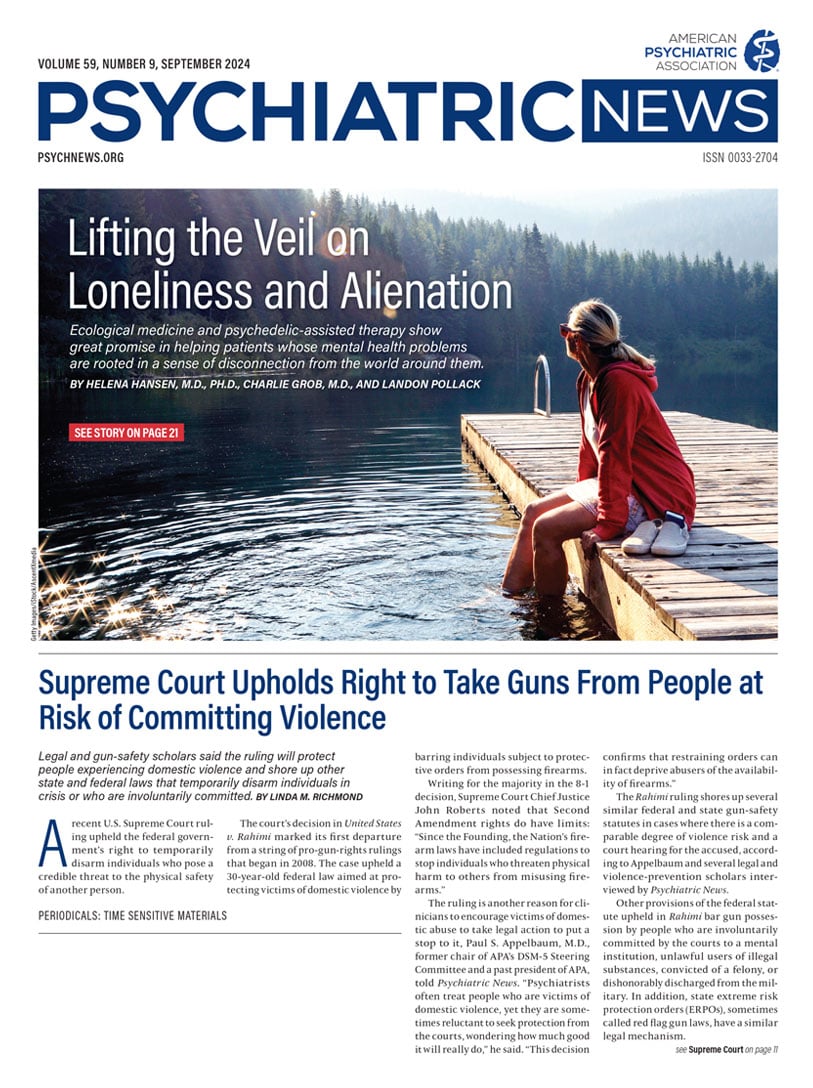A staff member working in a community mental health center operated by the state government alerted hospital administration to a social media post by Dr. Jones, one of the hospital’s psychiatrists, suggesting that all Palestinians should be killed because they are terrorists. Some of Dr. Jones’ trusted colleagues had gently asked her to delete the post, but she refused, citing her right to freedom of speech. Hospital leadership submitted the issue to the hospital’s ethics committee for guidance. During a hotly debated meeting of the committee, whose members include psychiatrists, nurses, social workers, community representatives, residents, and medical students, the issue of freedom of speech—especially in an era of widespread use of social media—took center stage.
The discussion began with a review of the limits of freedom of speech before turning to the ethical issues of note in this case. While the right of every U.S. citizen to freedom of speech is codified in the First Amendment of the Constitution, contrary to popular belief, this right is not absolute. For example, in a 1927 case, the Supreme Court held that the state, in exercise of its police power, can punish those who abuse their rights to freedom of speech “by utterances inimical to the public welfare, tending to incite crime, disturb the public peace, or endanger the foundations of organized government and threaten its overthrow.” However, a later Supreme Court decision, issued in 1969, clarified that a state cannot forbid freedom of speech that advocates the use of force unless such advocacy is directed to inciting or producing imminent lawless action and is likely to incite or produce such action. Then again, in 2015, the Supreme Court held that “Even if it does not single out any viewpoint for oppression, a law that precludes public discussion on an entire topic is content-based on its face and is subject to strict scrutiny under the First Amendment.”
In other words, it is not unconstitutional to criticize wars, abortion, or any other social issue.
Compassion and Respect
Now, back to Dr. Jones’ social media post. The ethics committee offered that allowing the offending post to stand would send a message to the public that the hospital, a state entity, condoned discrimination. Clinicians in the group observed that Dr. Jones’ post has compromised her ability to treat certain patients fairly and wondered if her racist comments did not extend beyond Palestinians. Others opined that hospital leadership could not in good conscience entrust the care of patients of color or Muslims, especially those from the Middle East, to Dr. Jones, thereby limiting options for patient assignments and increasing the workload of her colleagues. On the other hand, it would be understandable if certain patients refused to see Dr. Jones out of concern that they would not be treated fairly or provided with unbiased care.
The ethics committee justified its reasoning by referencing Section 1 of the APA Ethics Guidelines, which states: “A physician shall be dedicated to providing competent medical care, with compassion and respect for human dignity and rights.” Additionally, Topic 3.1.1 of the APA Commentary on Ethics in Practice states: “The physician-patient relationship is the cornerstone of psychiatric practice, and its goal is to promote patient health and well-being, embodying the key ethical considerations of respect for persons, fairness, and beneficence.” Dr. Jones’ social media post, in the committee’s opinion, violated these cardinal ethics injunctions.
Committee members asserted that Dr. Jones had demonstrated that she could not treat certain groups of patients with compassion as she clearly did not respect their humanity or rights. Likewise, they argued that Dr. Jones’ post breached Section 8 of the APA Ethics guidelines: “A physician shall, while caring for a patient, regard responsibility to the patient as paramount.” On another important note, committee members who were Dr. Jones’ Middle Eastern and South Asian colleagues along with other staff of color highlighted the challenge of working collaboratively with a colleague who viewed them with the disdain suggested in her post. Their reluctance to work with Dr. Jones could compromise patient care.
An Oath and a Pledge
Physicians often argue that, as citizens, they have a right to their opinion. That is correct. However, physicians should also carefully consider how their publicly stated opinions are likely to be interpreted by the public they have sworn an oath to treat with dignity and respect.
In the World Medical Association Declaration of Geneva, physicians pledge to maintain the utmost respect for human life and dedicate their life to the service of humanity. Comments that suggest otherwise are problematic and unethical. ■

